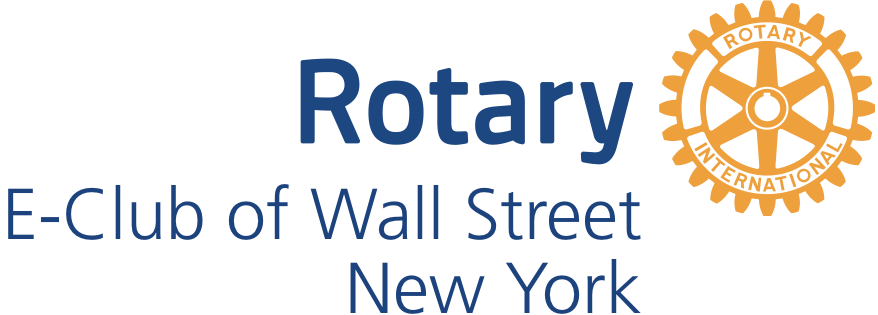OUR GLOBAL PROJECTS & INITIATIVES
The Ecole Communautaire Lumière de Jésus (ECLUJE) projectis a transformative initiative that provides free education to vulnerable children in Audan, a suburb of Port-au-Prince, Haiti.
Key highlights of the project include:
- Origins in Resilience: Founded in 2010 under tents following Haiti’s devastating earthquake, ECLUJE began as a grassroots response to the urgent need for education in a community without resources.
- Safe, Seismic-Resistant Design: The school(building)was constructed using steel-reinforced concrete, locally fabricated steel windows and doors, and cinder blocks, ensuring durability and safety in an earthquake-prone region.
- Environmentally Friendly Features: The school incorporates a compost toilet system, addressing sanitation challenges in a sustainable way, and an off-grid solar panel system that provides reliable electricity for lighting, technology, and community needs.
- Innovative Use of Space: With a limited footprint, the building incorporates a rooftop recreational area, maximizing utility and creating a safe outdoor space for students.
- Embedded in the Community: The school’s location allows children to remain within the safety of their own neighborhood, avoiding risks associated with traveling outside their immediate community.
ECLUJE exemplifies environmentally conscious, community-driven development. Its success is built on partnerships with local Rotarians, artisans, laborers, contractors, and suppliers, alongside global Rotary networks, making it a model for similar projects in Haiti and beyond.
Building a legacy: challenges, solutions, and lessons learned
Challenges
- Cramped and Shared Space: ECLUJE started under tents and later operated from the back of a church. These makeshift facilities were cramped, lacked proper ventilation, and offered no room for effective teaching or student engagement.
- Sanitation: The neighborhood lacks a municipal waste system. Traditional in-ground solutions like latrines or septic tanks were ruled out due to the density of the area and risks of pathogen leaching into the water table.Composting waste required a suitable processing location, which posed logistical challenges.
- Access to Fresh Water: Audan does not have a municipal fresh water supply. While a roof top rainwater collection system was implemented, the water is used primarily for cleaning, hand washing, and school projects rather than drinking.
- Earthquake Risks: Haiti is highly prone to earthquakes, necessitating a building design capable of withstanding seismic activity to ensure the safety of students and staff.
- Electricity: The local electric grid is unreliable, leaving the school without a dependable power source for lighting, educational tools, or essential equipment.
- Access to theSite: As a “walking-only” neighborhood, Audan required all construction materials and equipment to be manually transported through narrow pathways, complicating logistics.
- Safety and Vulnerability: By attending a school embedded in their neighborhood, students avoid the risks they might face traveling outside their community, including exposure to gang violence.
Overcoming The Challenges
- Sanitation
Extensive research led to the adoption of a compost toilet system. The RCWS team collaborated with SOIL(Sustainable Organic Integrated Livelihoods), whose industrial composting facility provided designs and methodologies adapted for ECLUJE.Partnerships ensured the safe processing of composted waste, addressing both sanitation and environmental concerns. - Access to Fresh Water
A rooftop rainwater collection system was installed, providing water for cleaning, hand washing, and school projects, which significantly improved hygiene despite the absence of municipal water. - Earthquake Risks
The building was constructed with steel-reinforced concrete foundations, beams, columns, and slabs, along with cinderblocks for walls. Interlocking steel-reinforcement bars and extra-deep foundations ensured seismic resistance. Expert guidance from a Rotarian building contractor further enhanced the structure’s safety. - Electricity
An off-grid solar panel system provides reliable electricity for lights, printers, computers, projectors, and a Wi-Fi router, as well as a charging station for cell phones. - Access to the Site
Lightweight, modular construction materials were transported manually with the help of community members who formed a human chain. A Rotarian-owned building materials company donated free deliveries to the neighborhood’s edge, while local contractors, artisans, and laborers completed the work. - Safety and Vulnerability
By embedding the school within the neighborhood, children can remain within the safe confines of their community, avoiding the dangers of traveling through unsafe areas.
Project Success and Key Parameters
The ECLUJE project stands as a model for addressing critical challenges in Haiti through:
- Community Integration: The school’s location within the neighborhood ensures accessibility and safety for students.
- Environmentally Friendly Solutions: Features like the compost toilet and solar energy system address infrastructure gaps sustainably.
- Local Partnerships: Collaboration with localRotarians, contractors, artisans, and laborers ensured cultural alignment and resource efficiency.
- Innovative Design: The rooftop recreation area optimizes the limited footprint, creating a multi-functional space for students.
- Cost Feasibility and Trust: The school director managed funds for the workforce with oversight from RCWS, keeping administrative costs at zero while fostering community trust and autonomy.
A Vision for the Future
With the success of ECLUJE, this project serves as a replicable model for other neighborhood schools in Haiti. Future initiatives should prioritize:
- Embedding schools within communities to ensure safety and accessibility.
- Incorporating eco-friendly systems like compost toilets and solar panels to address infrastructure needs sustainably.
- Leveraging local partnerships to foster trust and community involvement.
- Designing resilient structures capable of withstanding natural disasters.
- Maximizing multi-functional spaces to optimize limited footprints.
Join Us in Making a Difference
Help us continue to provide free education to children in Haiti and support the ECLUJE community.
Acknowledgments
Our heartfelt gratitude goes to:
- The local community in Haiti for theircollaboration.
- Rotary Clubs in Haiti and across the globe, including Rotary Clubs of Kleinmachnow, Euregio, New Jersey, and Vancouver.
- SOIL for their guidance on composting systems.
- Rotarian Contractors, Artisans, and Laborers for their expertise, donations, and collaboration.
- The Sfaira Foundation for their financial support of the school’s operations through 2027.
- Rotary International and its districts for supporting matching grant applications.
- Project Engineers and Architects for their contributions to the feasibility study, design, and construction.
- Fresly Toussaint, the school’s founder and director, for his vision and leadership.

Our project(s)in more detail:
Since 2019, the Rotary E-Club of Wall Street has supported the development of the school.
Phase 1 – Construction and delivery of a building
2018-2019: The idea is taking shape and Rotary Wall Street is coming on board;
2019-2020: Approximately $25,000 of funds raised for the construction of the building;
2020-2021: Delivery of the new building for the school with significant involvement of the local community.
Phase 2 – Enhancing the infrastructure of the building
2022-2024: Approximately $16,000 of funds raised, largely through the “Dinner for a cause” initiative online cooking events the European Camper Tour, and continued efforts by our Rotarian friends and matching grants;
2022-2023: Completion of the building, installation of a toilet;
2023-2024: Installation of a water tank and solar energy system.
Phase 3 – we keep going
2024+ More ideas are pursued, largely to enhance the benefits for the community .
